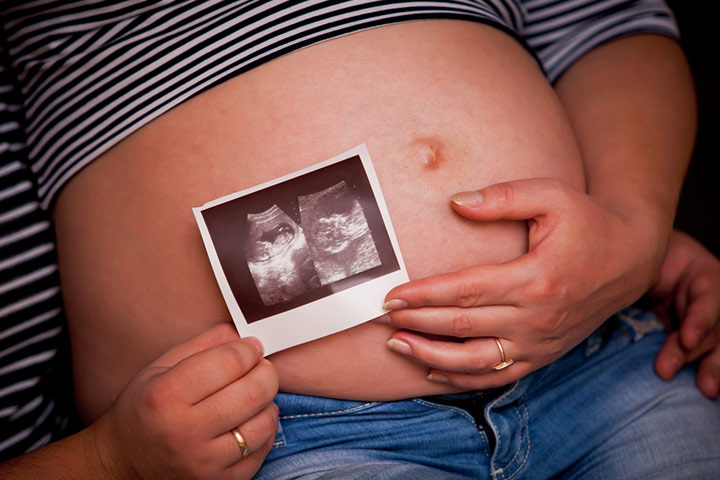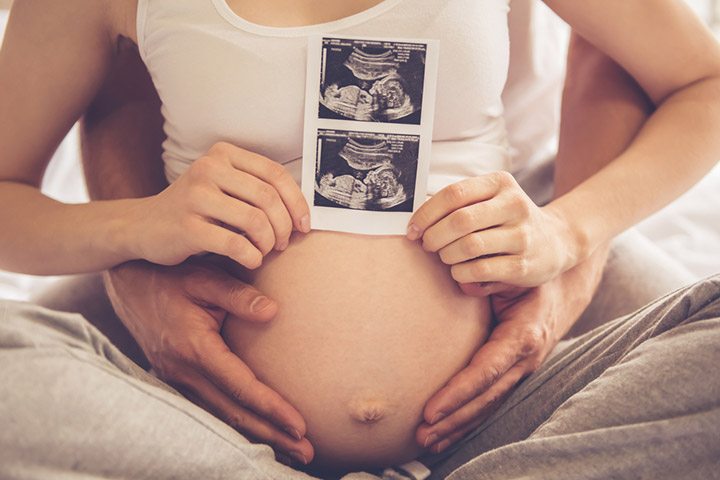
Image: Shutterstock
A new study shows that women who are stressed during pregnancy are more likely to give birth to girls. If these findings are accurate, there’s a possibility we’d be seeing more baby girls than boys. The 2019 study, which was carried out by Columbia University, reports that psychologically stressed pregnant moms were more likely to give birth to girls (1).
It’s not as though stress changes the biological gender of the babies; however, stress creates a situation that causes male fetuses to struggle for survival. Findings from the research explain why, after the 9/11 tragedy, mothers gave birth to fewer boys. It also emphasizes why women need emotional and psychological support during pregnancy.
Are Male Fetuses More Vulnerable To Stress?
The study’s co-author, Dr. Catherine Monk, professor of medical psychology and director of women’s mental health, says, “Some epidemiological studies have shown that stress also affects the population-norm male-female gender ratio.”
The World Health Organization’s population gender ratio shows that, on average, there are 105 males for every 100 females at birth (2). To an extent, this ratio holds steady and only changes in cases of acute stress.
A 2012 study revealed that pregnant women delivered fewer male babies during Chile’s severe earthquake (3). Other evidence suggests the existence of a negative relationship between stress levels before conception and the number of male births.
According to scientists, this happens because the male and female fetuses don’t respond the same way to stress in the womb. And this causes the male fetus to be more vulnerable.
Dr. Monk and her team’s study aimed to replicate previous findings and confirm the existence of a consistent correlation between maternal stress and an altered gender ratio. It also sets out to identify the effects of psychological and physical stress.
First, they identified and analyzed 27 physical, psychosocial, and lifestyle stress indicators recorded from surveys and journals of 187 women between ages 18 and 45. They also put the study’s participants through frequent physical assessments at intervals of their pregnancy. This step was taken to record their cortisol levels, blood pressure, depression and anxiety, and overall risk (4).
After collecting and analyzing data from the participants, researchers found that 17.1% of the women had higher levels of anxiety, depression, and perceived stress. Overall, the researchers considered them as more psychologically stressed. On the other hand, 16% of women had higher blood pressure and calorie intake. They were classified as being more physically stressed.
Compared to other women, the study noted that the physically stressed women had fewer male births. In terms of the ratio of boys delivered, it was 4:9 for physically stressed mothers and 2:3 for mentally stressed mothers. And 66.8% of the women who were considered physically and mentally healthy had a boy to girl birth ratio that reflected the WHO’s standard.
Interpreting the result of their findings, Monk and her team indicated that stressed women had experienced previous male miscarriages. This situation led to having a female baby in the present pregnancy. The interpretation was based on her previous work in evolutionary biology that indicated males were less likely to survive in adverse utero environments.
The result of the study left researchers surprised as they didn’t expect mental and physical stress to have such an impact on the gender of fetuses. Compelling as the result is, it does not conclusively prove that stress plays a role in determining the gender of babies. Other factors must be evaluated, and there’s a need for more research into the subject.
The key takeaway from this is that pregnant women’s stress levels should be kept as low as possible. Social support, a sense of belonging to a group, having people to talk to, and help with errands had a significant impact on the stress levels of pregnant women. Fathers-to-be should provide this social standard even before they know the gender of their babies.
Pregnancy is a stressful period in every woman’s life. So, cutting out stress is almost impossible. What we can do instead is reduce the stress levels. With this study showing how stress impacts pregnancy, husbands should provide a social support system to keep their pregnant wives healthy.
















